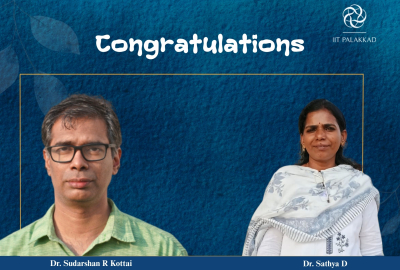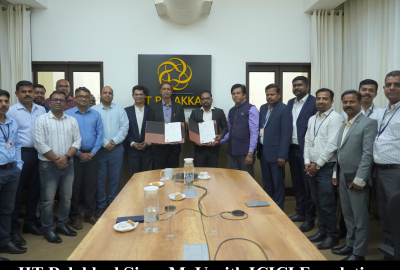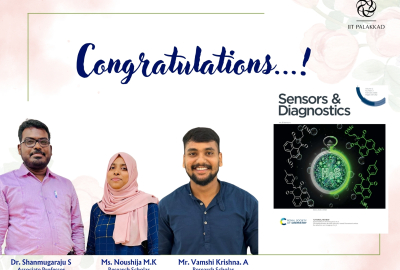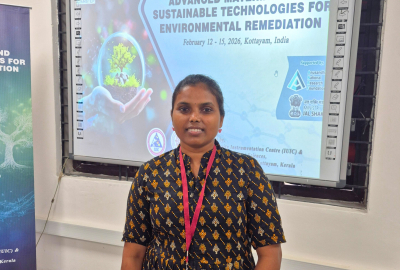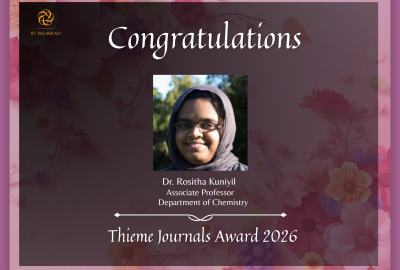
Day 2 of Science Quest-II & CRYSTAL: A day with Electrical Engineers
The second day of 10-day residential science camp for school students at IIT Palakkad, May 5th, witnessed Dr Swaroop Sahoo engage half the students in the Ahalya Campus Auditorium, while the other group designed a circuit using a printed circuit board in the Electronics Lab. Dr Sahoo sought to create clarity in the minds of students about what they engage with science and technology by probing them with the question ‘Why are you here?’. Responses included ‘Because the world is very mysterious’ , ‘Technology makes life easier’, ‘I like experiments’ and ‘To make things that help others’ among others. This led to a discussion on the difference between ‘science’ and ‘technology’. Pointing out that it often takes many years or decades to implement the things science discovers, as technology, Dr Sahoo summed up “ Science sets the foundation, does all the work. Technology makes it easy for common people to access”. He spoke of how Newton’s work on gravity dates back to the 15th century, but how the technology that enabled human beings to fly came centuries later. While there were random attempts to fly, he noted, such as in China and other parts of the world, these did not apply the idea of gravity. Asking students about ‘The most important part of an aeroplane’ led to a discussion on engines, and what kinds of engines are manufactured in India – a country with no dearth of engineers. Dwelling on how car engines have been around since the early 1900s in other countries, but the first indigenously developed car engine in India (Tata Tiago) came only after 2010, he asked why this was so. Noting that ISRO makes very good rocket engines, but that India doesn’t manufacture Light Combat Aircraft engines, he urged thinking about why this was so. Touching upon factors that make production possible, he dwelt on the difference between ‘manufacturing’ and ‘assembling’, and ‘design & fabrication’ and ‘manufacturing’. Stating “Life is easier because of computers”, he noted that German and American submarines and the Titanic were all designed without computers. ‘Technology readiness levels’ and the process followed to ascertain this in various countries, was discussed. ‘Emerging fields in engineering’, and ‘Do we do more good or bad with Technology’ were some other topics he quizzed the students on and probed their responses too. Going deeper into one of the emerging fields – Drone Technology – he highlighted Air Defence Systems as one of the most complicated network technology applications in the world and went into some detail on radar, electromagnetic signals, and the different response of such systems to aircraft and drones. Demonstrating the impact of wrapping a cellphone in aluminium foil he also discussed Electromagnetic Shields.

